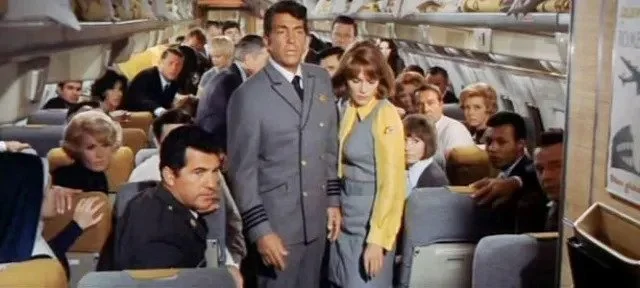Airport-Movie Review
There’s so many great movies that sometimes a real gem falls completely under the radar. I feel like this is especially common with 70s movie. It was this decade of decay and stagnation that kind of lodged itself in the American consciousness as something fundamentally gone and incomplete. But sometimes you find something that captures it kind of perfectly, something that feeds you what feels like a more representative version of the past than the one you had picked up. Enter Airport.
This movie is one of those above-mentioned forgotten classics, a testament to a Hollywood machine from long ago, a smarter, bigger and more graceful one. What’s it about? Well, an airport and the people who work there, the constant minutea fueling their work and the stress this line of work places on their families and lives. It tells a multi-faceted tale and it’s depiction is really well rounded. The artistry of this film too is great. They do some creative things here with the script and the camera that give each storyline it’s own unique vibrancy. And these elements also allow them to really move you through the story efficiently.
Airport, like many travel-disaster movies, begins with a winter storm, the type that only comes around every few years. A plane gets stuck on the runway, helplessly spinning it’s wheels in the Chicago snow. This is bound to cause some delays. As the airport bureacracy scrambles to find a solution, some even propose the unthinkable- closing the airport for the night. This is an emergency situation!
So they call Joe Patroni (George Kennedy). This sequence is great. You see him holding his wife, clearly anticipating a night of passion between them when he gets the call. Disgruntled byt also invigorated, Patroni gets fired up for the job. “They don’t call it an emergency anymore” he says, “they call it a Patroni.” It’s a great line, well delivered by Kennedy, who’s charisma and confidence is all over this movie.
Meanwhile, Mel Bakersfield (Burt Lancaster), is having trouble with his wife. This is illustrated beautifully through a series of scenes that are organized using these window-like cuts and views, as if we were seeing a 2.5d film and roving through all the rooms. It’s interesting and it’s quick but it leaves an impact. His wife feels like he’s never home, doesn’t make enough money. He feels frustrated by this and doesn’t even want to go home at this point. He’s developed a close friendship with his colleague Tanya Livingston (Jean Seberg) that unfolds as the movie goes on.
There’s no real “main character” in this movie, rather the narrative is distributed delightfully across several engrossing and well played characters. Helen Hayes is marvelous in her role as Ada Quansett, an old lady who has mastered tricking the airlines into giving her free flights. Van Heflin is great as D.O. Guitarrez, a down on his luck demolition engineer who is up to no good. He captures the humanity of Guitarrez’s situation while still being a strong villain who plays well into fears of modern air travel. The little romance arc between Dean Martin’s character, pilot Vernon Demerest, and Jacqueline Bisset’s character, stewardess Gwen Meighan injects some layered drama into what is already a tense plane ride.
This movie just works. It’s well written, well acted, craftily directed. The sets are beautiful, like a play and even as it portrays this sort of late 60s malaise, it also shows how much more…physical and real things were back then. It captures both 70s masculinity and it’s sensitivities without feeling contrived or stilted. The ebb and flow of their banter with the women is a breath of fresh air compared to the neo-puritanism we see today. Even if society as broken in some ways then, it wasn’t broken the way it is now and it’s not hard to see how that might make one wistful. This movie does capture an era of American history that just feels more comprehensive and wholesome than the shallow times we live in today.
Airport may not be required viewing for the American film fan, but its an excellent addition to anyone’s collection and a great way to spend time. I learned stuff watching this movie, about filmcraft and storytelling and the nuts and bolts that hold really any movie together. This is a movie that feels like a well built house. Everything is sturdy and where you expect it to be and the synergy of all this leds like a “umami” type feel to the viewing. It’s a movie that can be adored both by casual viewers and film freaks (like me) alike. So check it up it you’re interested. It’s definitely worth your time.

